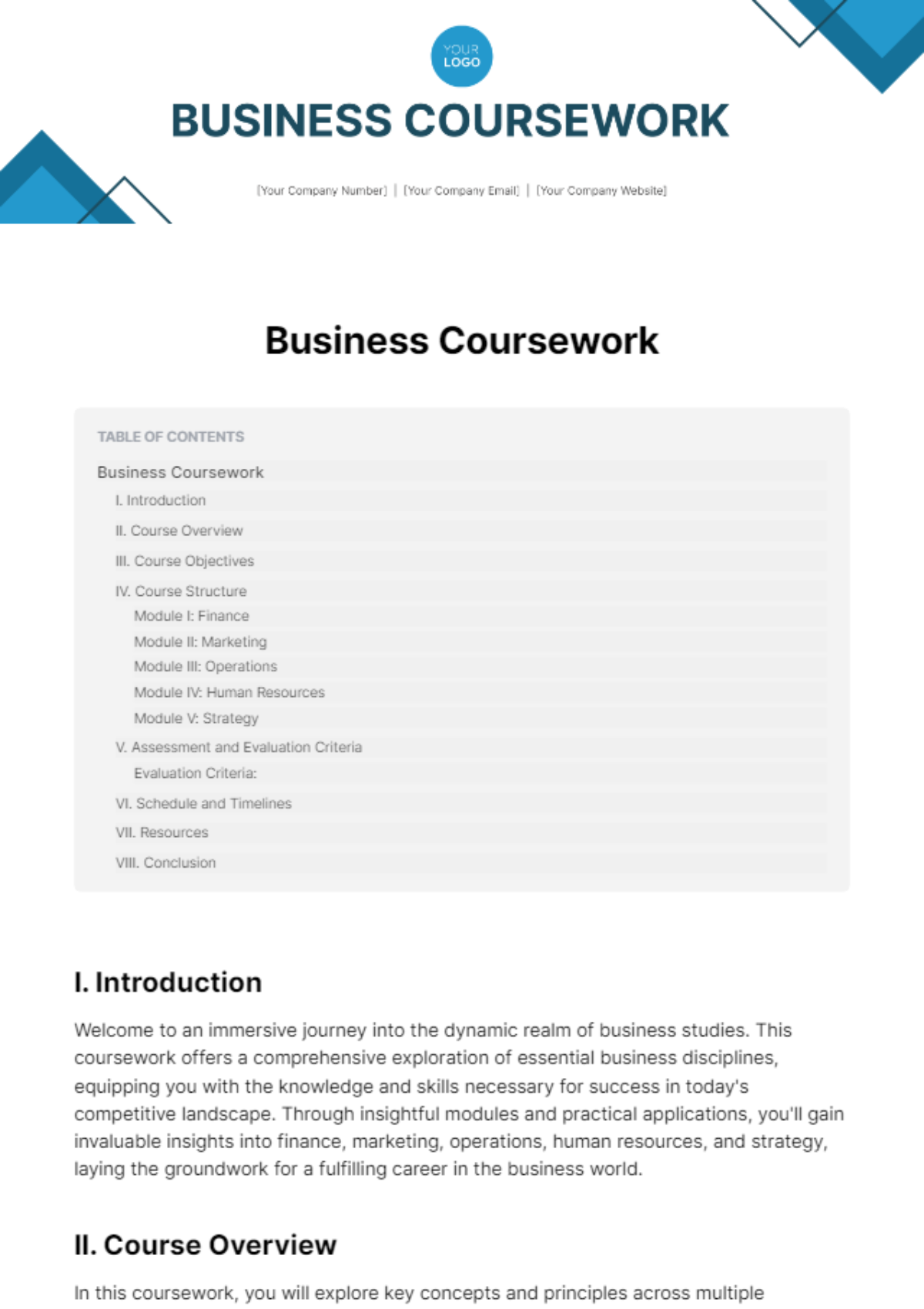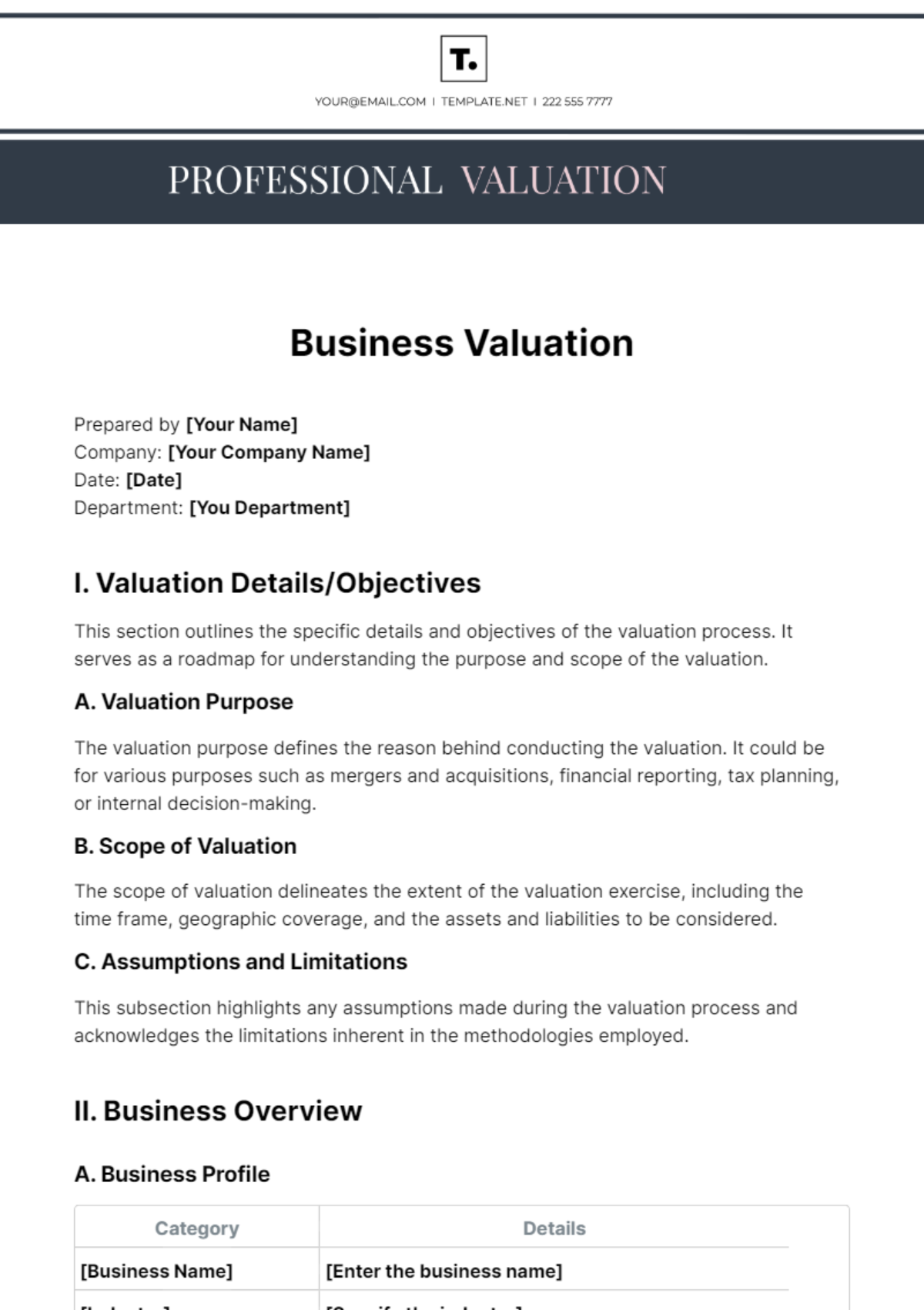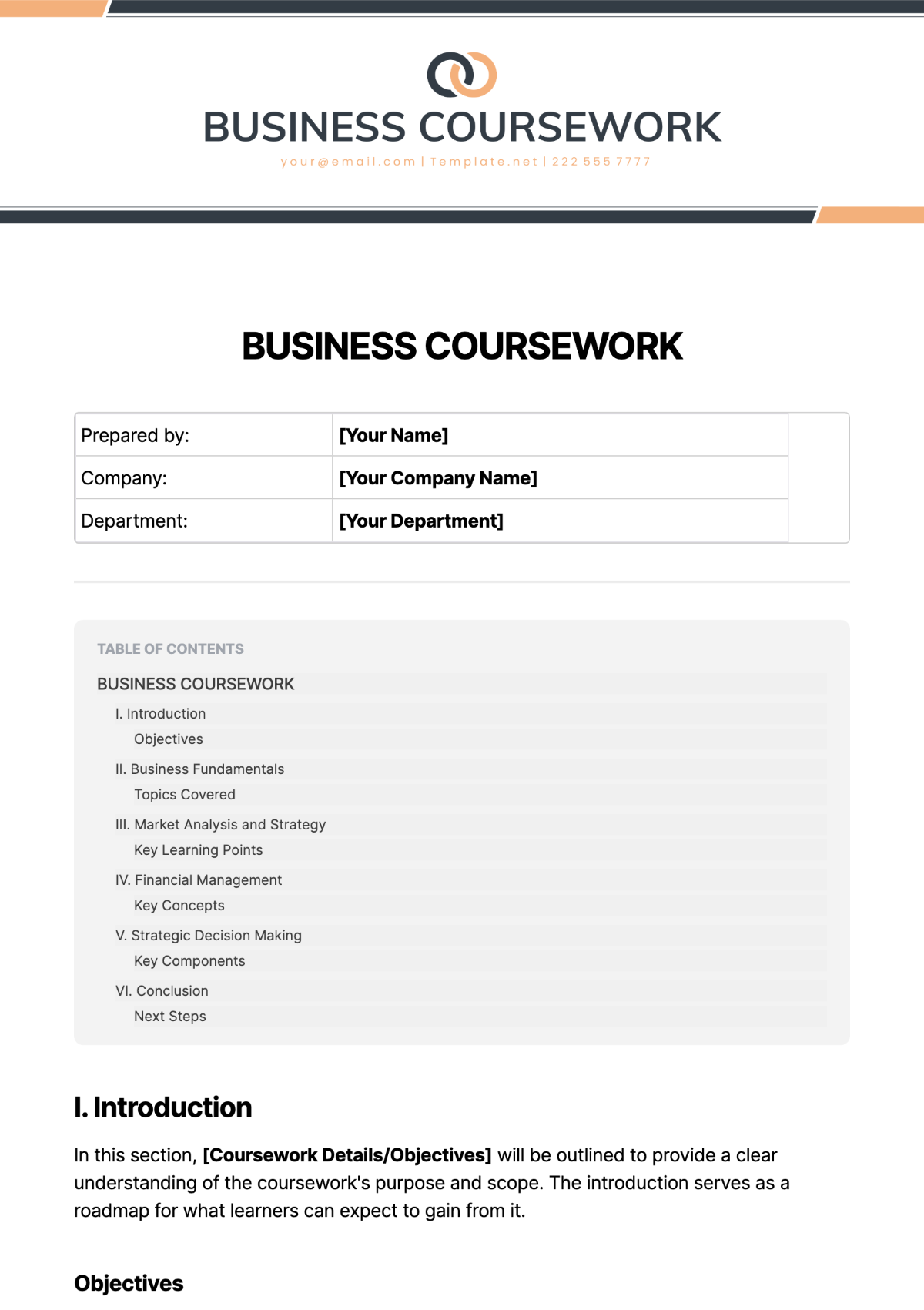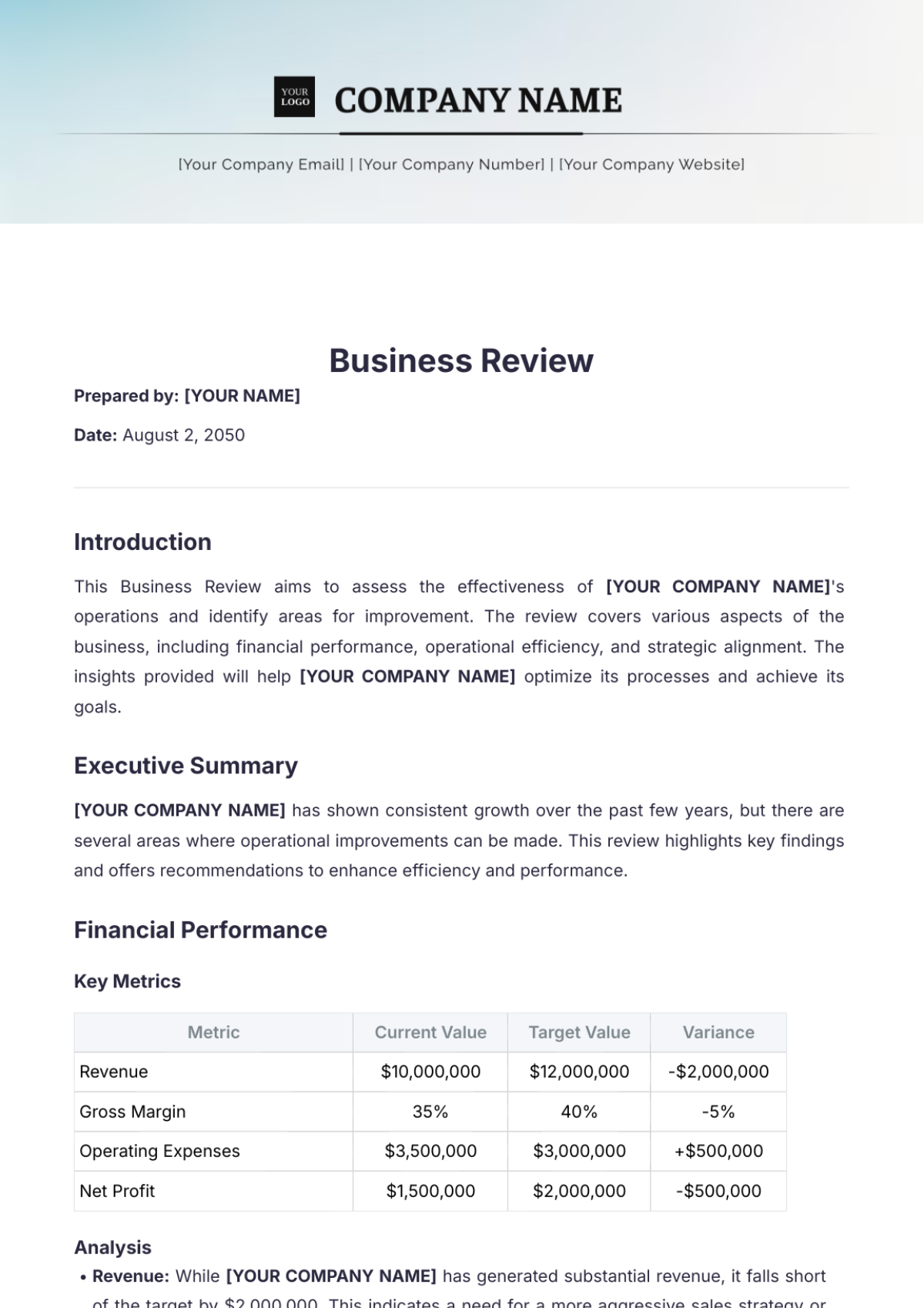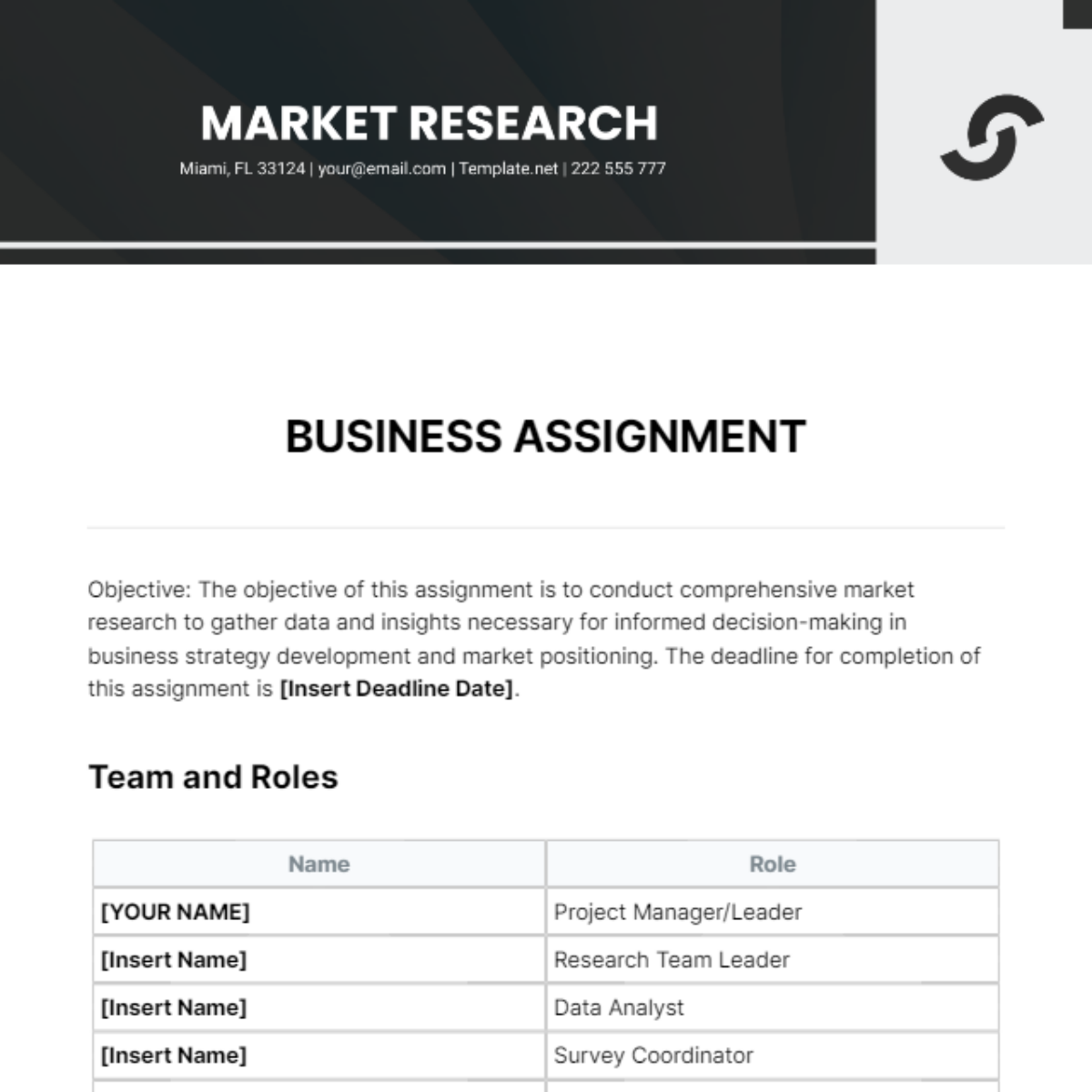BUSINESS COURSEWORK
Prepared by: | [Your Name] |
Company: | [Your Company Name] |
Department: | [Your Department] |
I. Introduction
In this section, [Coursework Details/Objectives] will be outlined to provide a clear understanding of the coursework's purpose and scope. The introduction serves as a roadmap for what learners can expect to gain from it.
Objectives
Understand the fundamental principles of [Business Management].
Learn effective strategies for [Market Analysis] and [Business Planning].
Develop skills in [Financial Management] and [Strategic Decision Making].
The coursework will delve into various aspects of business management, equipping participants with practical knowledge and tools necessary for success in today's dynamic business environment.
II. Business Fundamentals
This section covers essential concepts in [Business Management] to establish a strong foundation for learners. Topics include organizational structures, functions of management, and key principles guiding business operations.
Topics Covered
Organizational Structure: Explore different types of organizational structures such as hierarchical, flat, and matrix organizations. Understand the advantages and disadvantages of each structure.
Functions of Management: Learn about planning, organizing, leading, and controlling as the four primary functions of management. Discover how these functions interrelate to achieve organizational goals.
Ethical Considerations: Examine the importance of ethical behavior in business operations. Understand how ethical dilemmas arise and how organizations can address them effectively.
III. Market Analysis and Strategy
This section focuses on [Market Analysis] and [Business Strategy], essential components for sustainable growth and competitive advantage. Participants will learn how to analyze market trends, identify opportunities, and develop strategic plans to capitalize on them.
Key Learning Points
Market Research Methods: Explore various market research techniques, including surveys, focus groups, and data analysis. Learn how to gather and interpret market data to make informed business decisions.
Competitive Analysis: Understand the importance of analyzing competitors to identify strengths, weaknesses, opportunities, and threats (SWOT analysis). Learn how to use competitive intelligence to gain a competitive edge.
Strategic Planning: Develop skills in formulating and implementing business strategies. Learn how to set clear objectives, allocate resources effectively, and adapt to changing market conditions.
IV. Financial Management
Financial management is crucial for the success and sustainability of any business. This section covers [Financial Management] principles, including budgeting, financial analysis, and risk management.
Key Concepts
Budgeting: Understand the importance of budgeting in planning and controlling financial resources. Learn how to create comprehensive budgets for various business functions.
Financial Statement Analysis: Explore techniques for analyzing financial statements, including income statements, balance sheets, and cash flow statements. Learn how to interpret financial ratios to assess a company's financial health.
Risk Management: Identify common financial risks faced by businesses and learn strategies to mitigate them. Understand the role of insurance, hedging, and diversification in managing financial risks effectively.
V. Strategic Decision Making
Strategic decision-making is a critical skill for business leaders. This section explores [Strategic Decision Making] processes, tools, and techniques to make informed and effective decisions in complex business environments.
Key Components
Decision-Making Models: Explore different decision-making models, including rational, intuitive, and bounded rationality models. Understand the strengths and limitations of each model.
Risk Assessment: Learn how to assess risks associated with different decision alternatives. Understand the concept of risk tolerance and its implications for decision-making.
Implementation and Evaluation: Explore strategies for implementing and evaluating strategic decisions. Learn how to monitor progress, adjust strategies as needed, and measure outcomes effectively.
VI. Conclusion
In conclusion, this coursework provides a comprehensive overview of [Business Management] principles and practices. Participants will gain valuable insights and skills to navigate the complexities of the business world successfully. By mastering the concepts covered in this coursework, individuals can contribute to organizational growth and achieve their professional goals.
Next Steps
Complete the assigned readings and exercises for each section.
Engage in group discussions and case studies to apply theoretical knowledge to real-world scenarios.
Seek feedback from instructors and peers to enhance learning and skill development.




